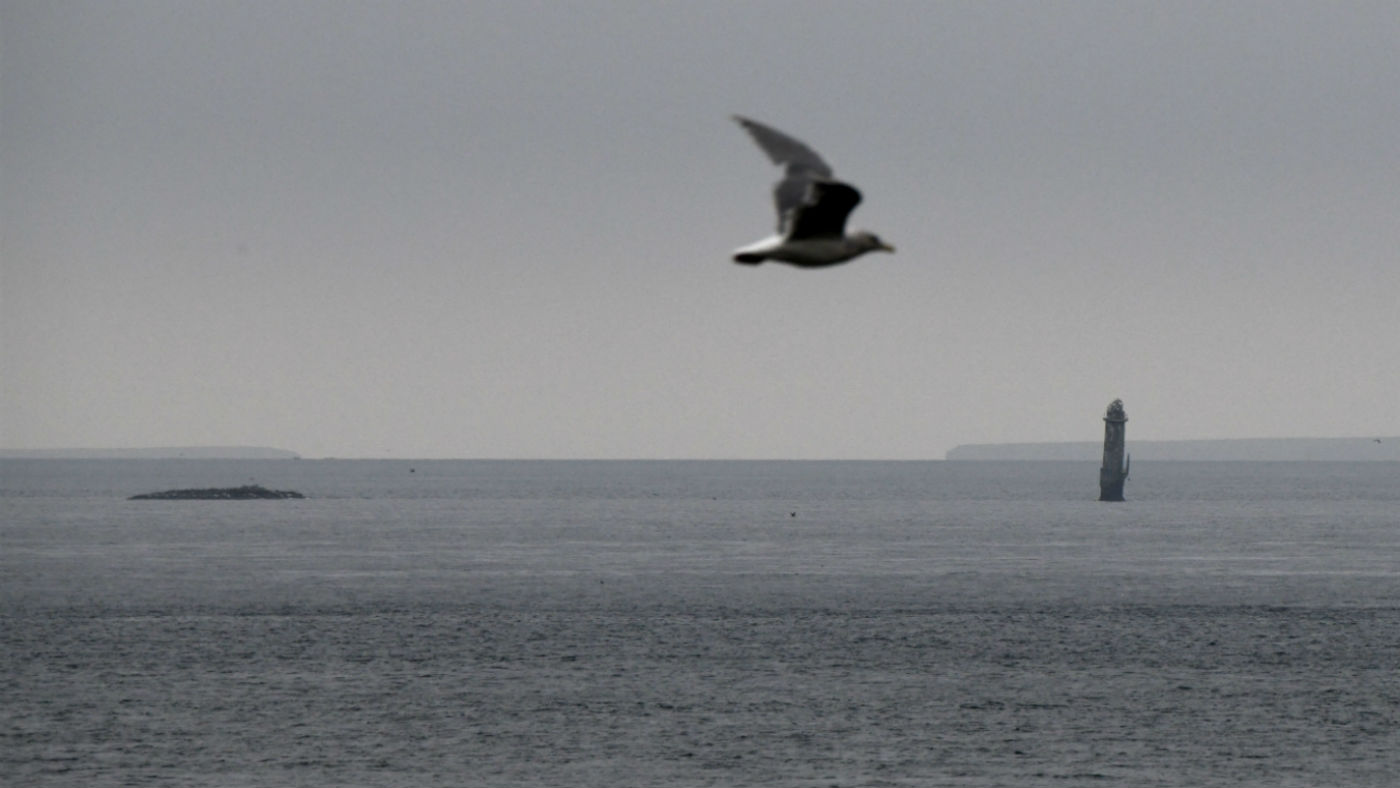Japan launches search for ‘missing’ island
Esanbehanakitakojima forms part of Japan’s maritime border - or, at least, it used to

A free daily email with the biggest news stories of the day – and the best features from TheWeek.com
You are now subscribed
Your newsletter sign-up was successful
Japan’s coast guard has been dispatched to investigate after a small island “vanished” off the coast of Hokkaido.
Esanbehanakitakojima, one of the country’s hundreds of uninhabited islets, previously sat just off the northern coast of Hokkaido, the northernmost of Japan’s major islands. A 1987 coastguard survey recorded the island as rising 1.4 metres above sea level.
Just 500 metres from the fishing village of Sarufutsu, the rocky outcrop could be seen from the coast on a clear day. However, it has now totally disappeared from view.
The Week
Escape your echo chamber. Get the facts behind the news, plus analysis from multiple perspectives.

Sign up for The Week's Free Newsletters
From our morning news briefing to a weekly Good News Newsletter, get the best of The Week delivered directly to your inbox.
From our morning news briefing to a weekly Good News Newsletter, get the best of The Week delivered directly to your inbox.
The “missing” island became headline news thanks to author Hiroshi Shimizu, who had travelled to the coastline in search of inspiration for a book about hidden islands, CNN reports.
Locals told Shimizu that the island had vanished, although “other fishermen said that Esanbehanakitakojima shows up as an islet on navigation systems”.
The coast guard is now planning an operation to search the area for traces of the missing island.
Curiosity is not the sole motivating factor behind the search mission. The island forms part of Japan’s maritime border, one of 158 islands chosen to demarcate the country’s territorial claims over the Sea of Okhotsk, which separates Japan from Russia.
A free daily email with the biggest news stories of the day – and the best features from TheWeek.com
“Under international laws, islands can be designated as such only if they can be seen above the sea surface even in high tides,” says local daily Asahi Shimbun.
This means that if Esanbehanakitakojima has sunk below the surface, “Japan will lose 500 metres of territorial waters”, says CNN. A tiny portion, maybe, but significant in a region where contested seas can lead to heated diplomatic disputes.
As for the island’s fate, maritime officials suspect it may have disappeared below the surface “as a result of natural erosion by waves and drift ice in the frigid and stormy waters of the Sea of Okhotsk”, Quartz reports.
As a hotbed of seismic activity and extreme weather, Japan “has found itself not only losing, but sometimes gaining territory”, says Japan Today.
In 2015, a 300-metre stretch of seabed in Hokkaido rose above the water to become part of the coastline.
“Initially, the phenomenon raised fears of mysterious seismic activity, but geologists said it was probably the result of a landslide that pushed the underwater surface up,” the news site reports.
-
 Sepsis ‘breakthrough’: the world’s first targeted treatment?
Sepsis ‘breakthrough’: the world’s first targeted treatment?The Explainer New drug could reverse effects of sepsis, rather than trying to treat infection with antibiotics
-
 James Van Der Beek obituary: fresh-faced Dawson’s Creek star
James Van Der Beek obituary: fresh-faced Dawson’s Creek starIn The Spotlight Van Der Beek fronted one of the most successful teen dramas of the 90s – but his Dawson fame proved a double-edged sword
-
 Is Andrew’s arrest the end for the monarchy?
Is Andrew’s arrest the end for the monarchy?Today's Big Question The King has distanced the Royal Family from his disgraced brother but a ‘fit of revolutionary disgust’ could still wipe them out
-
 Epstein files topple law CEO, roil UK government
Epstein files topple law CEO, roil UK governmentSpeed Read Peter Mandelson, Britain’s former ambassador to the US, is caught up in the scandal
-
 Iran and US prepare to meet after skirmishes
Iran and US prepare to meet after skirmishesSpeed Read The incident comes amid heightened tensions in the Middle East
-
 Israel retrieves final hostage’s body from Gaza
Israel retrieves final hostage’s body from GazaSpeed Read The 24-year-old police officer was killed during the initial Hamas attack
-
 China’s Xi targets top general in growing purge
China’s Xi targets top general in growing purgeSpeed Read Zhang Youxia is being investigated over ‘grave violations’ of the law
-
 Panama and Canada are negotiating over a crucial copper mine
Panama and Canada are negotiating over a crucial copper mineIn the Spotlight Panama is set to make a final decision on the mine this summer
-
 Why Greenland’s natural resources are nearly impossible to mine
Why Greenland’s natural resources are nearly impossible to mineThe Explainer The country’s natural landscape makes the task extremely difficult
-
 Iran cuts internet as protests escalate
Iran cuts internet as protests escalateSpeed Reada Government buildings across the country have been set on fire
-
 US nabs ‘shadow’ tanker claimed by Russia
US nabs ‘shadow’ tanker claimed by RussiaSpeed Read The ship was one of two vessels seized by the US military